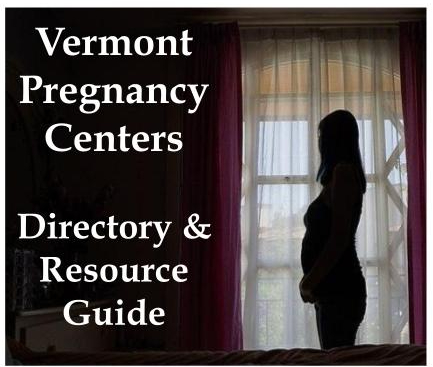By James McFaul
Will Article 22 enshrine late-term abortions in the Vermont Constitution?
This has become a key issue in the debate, and supporters of Article 22 have alleged that it will not. Their argument is, in essence, that because the UVM Medical Center is currently the only provider of late-term abortions in Vermont, and UVMMC has a policy that it will not perform late-term abortions except in extreme, life-threatening situations, then it follows that late term abortions will not be performed in Vermont.
The current medical practice that disfavors late term abortions is an adequate safeguard against the procedure in the future, in their view. A commentator in VTDigger went on to say that “what will be enshrined in our Constitution is that politicians (the Legislature and the governor) will not determine what restrictions should be placed on abortion procedures, but rather that these restrictions will be left — as they are now, and should be — to the hospitals, professional medical organizations, and the Board of Medical Practice.”
This statement is incorrect, and troubling.
It is incorrect because current custom and practice are not sufficient justifications for restricting a constitutional liberty right. The point of affording constitutional protection to sensitive liberty issues is often to overcome prevailing practices that burden those liberties. There is no limiting language to the right to abortion in Article 22, which states: “That an individual’s right to personal reproductive autonomy is central to the liberty and dignity to determine one’s own life course and shall not be denied or infringed unless justified by a compelling State interest achieved by the least restrictive means.”
“Personal reproductive autonomy” includes, first and foremost, the right to have an abortion, and there is no language limiting when that abortion may be obtained. It does not say “up to 22 weeks,” or “prior to fetal viability.” The right is granted, and it is unlimited. Any attempt to limit it, at any point, would have to pass the “unless justified by a compelling state interest achieved by the least restrictive means” clause (known as “strict scrutiny”). There is no mention of what would constitute a “compelling state interest.” Unlike the Roe v. Wade line of cases, there is no mention of the humanity of the child in utero, or the possible interest of the state in protecting the unborn child after the point of viability. This is truly a case of a “deafening silence,” for the Legislature could easily have included such language. The issue was raised repeatedly during the various hearings, that this was enshrining abortions up to the moment of delivery. If that was not the intent — as so many people are now asserting — the Legislature could easily have said so by including some limiting language. It did not, and that in itself is a clear message concerning the “legislative intent.”
Back to the question of how much weight current medical practice, or the opinions of the UVMMC Ethics Committee, or the current standards set by the Vermont Board of Medical Practice, will carry in meeting the “compelling state interest” test: Zero. None. They would be swept aside by the first lawsuit on behalf of a woman asserting her right to “personal reproductive autonomy,” even at 23 weeks or later. Under Article 22 it will be her constitutional right to do so, and no ethics opinion will stand in the way of that right.
Even assuming the UVM Medical Center maintains its current policy concerning late-term abortions, what is to stop out-of-state late-term abortion providers from coming to Vermont? Protected by Article 22, it will be very hard to stop, or even regulate, such providers. Late term abortions will be a fundamental liberty right under Article 22, and any attempt to burden that right will have to pass the “strict scrutiny” test. Legal scholars know how difficult a test that is.
A final, but important thought: why are we bashing the Legislature and the legislative process? Why would we prefer that unelected, unaccountable private entities like the Board of Medical Practice, or the UVMMC Ethics Committee, determine the extent of abortion rights behind closed doors, rather than our elected representatives through public hearings and debate? Has our confidence in the democratic process sank so low, that we would rather have unelected bodies decide these crucial issues of liberty and the protection of human life?
The author is an attorney in St. Johnsbury, who has practiced civil law for 26 years and is admitted to the federal and state courts in Vermont, New Hampshire, Maryland, and the United States Supreme Court.
Categories: Commentary






Under Title 22, would they not be obliged, to perform late-term abortions?
Exactly, Mr. McFaul! There is a trend to continue taking responsibility for our important decisions off the backs of individual citizens and elected legislators and dumping that responsibility on the ever powerful, deliberately nebulous, and always liability-evading State Machine.
Note that the legislature has repeatedly refused to offer any conscience protections for healthcare personnel. It would appear to include to healthcare institutions refusing to participate for reasons of policy based upon ethical principles, or to any institution offering conscience protection.
On the other hand, the legislature could have completely obviated the need for this discussion if the had spelled out what they meant.
It’s much worse than that, is passed prop 22 would legalize sexual assault and child molestation under “reproductive autonomy”